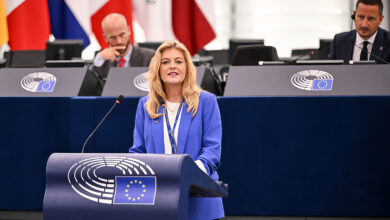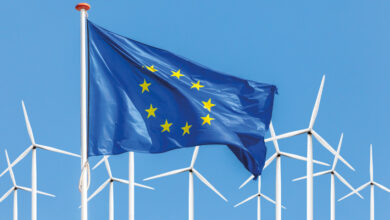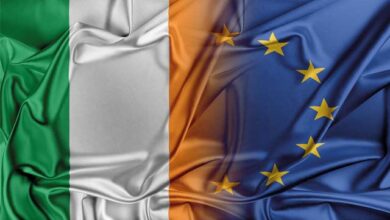Brexit update: Article 50 pending
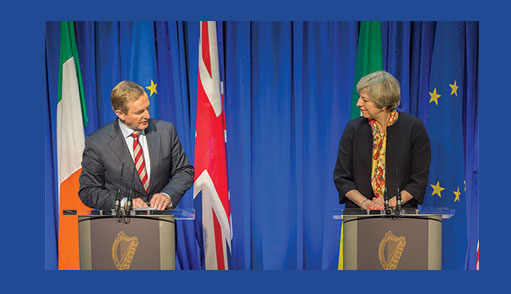
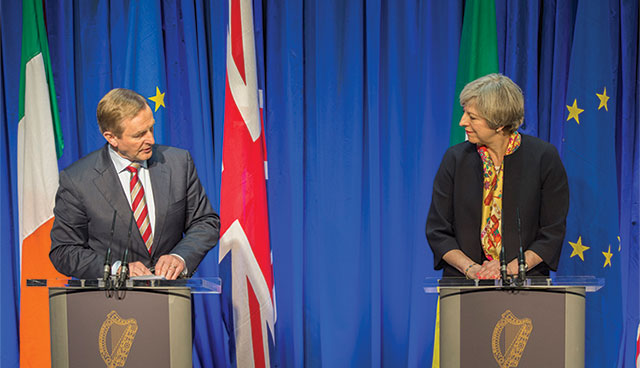
At the British Tory party conference in late 2016, leader Theresa May explicitly stated that Article 50 will be invoked no later than the end of March 2017. The impending process, which could not be initiated by a unilateral government decision, seeks to set the course for full British withdrawal by March 2019. eolas provides an update.
With both the High Court and latterly the Supreme Court ruling that the invocation of Article 50 could only occur through an Act of Parliament, the UK Government initiated legislation to empower the Prime Minister to provide the Council of the European Union with formal notice of its intention to leave the EU. The European Union (Notification of Withdrawal) Bill 2017 was introduced as two short clauses on a single page and passed the third House of Commons reading by 494 to 122 before being presented before the House of Lords. Having completed third reading, the Lords voted to return the bill to the Commons with the two amendments which the Government will seek to overturn.
Theresa May
Declining an invitation to address the Houses of the Oireachtas, British Prime Minister Theresa May visited Dublin at the end of January and attended a meeting with the Taoiseach at Government Buildings. Ahead of Britain’s official notification of withdrawal, the border and the North featured prominently in what was characterised as “frank but constructive” discussion. Having been present at a meeting of the leaders of the UK’s devolved institutions in Cardiff earlier in the day, the visit was fleeting.
As thoughts turn from ‘borders of the past’ to ‘borders of the future’, Prime Minister May voiced renewed support for the continued existence of the Common Travel Area and suggested that both Governments wished to see a “seamless, frictionless border”. The Taoiseach confirmed that he hoped for a border scenario that was “as trouble-free as possible”. However, ahead of Britain’s anticipated withdrawal from the EU customs union there was a dearth of detail as to how this might be achieved.
Speaking at the subsequent press conference, Enda Kenny stated: “Prime Minister May and I also took the opportunity today to reaffirm our commitment to maintaining the Common Travel Area and agreed to continue working together to this end. Our discussions also touched on the importance of our future co-operation in key areas such as agriculture and food, energy, security and criminal justice, education and culture.”
May outlined: “I know that for the people of Ireland and Northern Ireland the ability to move freely across the border is an essential part of daily life, which is why the Taoiseach and I have both been clear that there will be no return to the borders of the past.
“Maintaining the common travel area and excellent economic links with Ireland will be important priorities for the UK in the talks ahead. Together we trade €1.2 billion worth of goods and services every week. No one wants to see this diminished.”
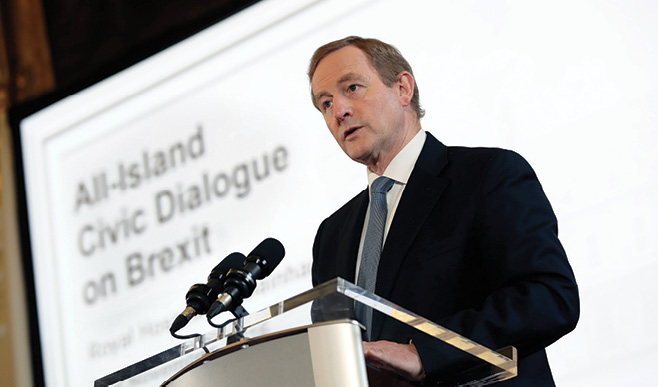
All-island dialogue
Over 400 representatives from across civic society and industry attended the second plenary of the All-Island Civic Dialogue on Brexit took place at Dublin Castle in February. Among those in attendance were representatives from all the major parties across the island, with the very conspicuous exception of both the DUP and UUP, or indeed any delegates from within political unionism.
At the dialogue, the Taoiseach affirmed Ireland’s commitment to EU membership and asserted: “Brexit is a British policy, not an Irish or an EU policy. I continue to believe it is bad for Britain, for Ireland and for Europe. But I respect the referendum result, and I recognise that Brexit is now going to happen. Unfortunately, its most severe impact could well be felt on this island. That is why protecting the peace process and the Common Travel Area are priority objectives for the Government.”
Furthermore, Kenny was resolute in his statements that he would strive to put forward the interests of the North in the Brexit negotiations. He stated: “I will defend the Good Friday Agreement, in its spirit as well as its letter. The Irish Government will oppose a hard border, argue for free movement on this island, seek EU funding for cross-border projects and protect the rights of EU citizens, whether from North or South. We must not return to a hard border or create a new border of the future… This is a political matter, not a legal or technical matter.”
There was also a reiteration of the series of joint principles for moving forward which were agreed between the Irish Government and the Northern Ireland Executive at the North South Ministerial Council. These principles include:
- a recognition of the unique circumstances of Northern Ireland, bearing in mind its geography and history;
- efforts to ensure that the treaties and agreements between Ireland and the UK are fully taken into account;
- protection for the free movement of people, goods, capital and services; and
- the maintenance of the economic and social benefits of co-operation.
Fianna Fáil leader Micheál Martin was scathing in his analysis of the pro-Brexit contingent within the British Government and submitted: “The fact that those who pushed for that result had no plans for what came next is blindingly obvious.”
Continuing, Martin referred to the challenge posed by Brexit as the greatest which will be faced by this current generation. Supportive of the case for a recognition of special status for the North, he emphasised “the fact that Northern Ireland will contain the largest concentration of EU citizens outside of the EU, it is different” and raised the option of seeking “Special Economic Zone status for Northern Ireland and those areas where trade with Northern Ireland is a major factor”.
As a way forward, the Fianna Fáil leader argued: “Many of the pre-EU CTA rights we not formally incorporated in statute law. In order to provide long-term security and to avoid future problems, we urgently need to start preparing legislation to protect rights covering not just travel and employment but also health, education and social protection rights.”
Sinn Féin President Gerry Adams criticised the Taoiseach’s rejection of the proposition of special status for the North as “a grave mistake”. He noted: “Without such a designation, a hard border is inevitable. I very much welcome the vote in the Dáil calling on the Government to negotiate for the north to be designated as having special status within the EU.
“Our Government cannot continue merely reacting to what the British government have to say, or what they may or may not do, or worst still repeating the British line with an Irish spin on it.”
Advocating for the forging of new relationships and the creation of new alliances within the EU, Adams proposed: “There is also an opportunity and a need to reform the European institutions; including the strengthening of the role of smaller member states within it.”
Concluding his contribution, the Sinn Féin leader made reference to a speech in which Enda Kenny alluded to the fall of the Berlin Wall and the EU’s contribution to ending the border that had divided Europe for decades. “It would be cruelly ironic if it was here in Ireland that EU borders and customs posts and division would re-emerge. That a new European frontier would run from Dundalk to Derry. That must be avoided at all costs,” he stated.

